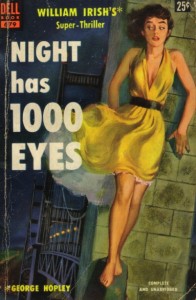
The Night Has a Thousand Eyes—George Hopley–(Cornell Woolrich)–1948–IP
Of the numerous novels of suspense Woolrich has written and I’ve read, The Night Has a Thousand Eyescaused the most tense and angst filled moments. The uneasy
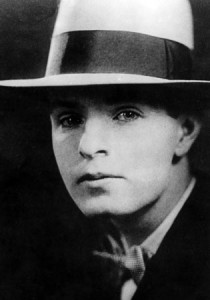
reality of a Woolrich novel is the knowledge that the conclusion of the story can go either way. A relentless dark hopeless story can end miraculously, or tragically. The reader is unaware of which will prevail until nearly the last words. The journey to the conclusion can be nerve shattering in intensity. In the instance of this novel, it haunted me, and now that I’m rethinking, it still does. It’s a novel of predestination, of a lack of control over life and death, of hope that ekes along, but barely.
It begins under those stars. Detective Tom Shawn happens upon a young woman about to end her life, and stops her. When he hears her story, he believes he and the police force can do something to aid her. A clairvoyant has predicted the exact day, moment of her wealthy father’s death, and she and he both emphatically believe the physic. Shawn is not convinced and starts an investigation of the man attempting to expose trickery in order to relieve Jean Reid’s mind. Delving into the story, as the reader, I also became uneasy, worried that there was no gimmick, that this man could and did predict the future, and Harlan Reid was indeed doomed to die. The
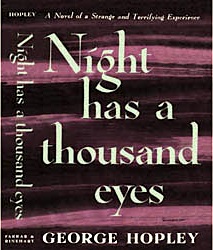
brilliance of Woolrich is the way he teases the reader into small doses of hope, glimmers of possibilities, of either unmasking a fraud thereby removing the fatalistic prediction, or preventing the supposed inevitable from happening.
A film adaptation was made, as so many were of Woolrich’s novels. None of which stick completely with the story. I’ve seen an adaptation that is almost entirely faithful–until the end. Another was obvious from the beginning, and don’t even get me started on Rear Window, Hitchcock’s classic of a Woolrich short story. The title is about all the similarity there is–and Hitchcock, ever the gentleman, didn’t bother to invite the author to the premiere of the film. That’s Hollywood for you–the writer is the least respected individual in the process–a necessary evil.
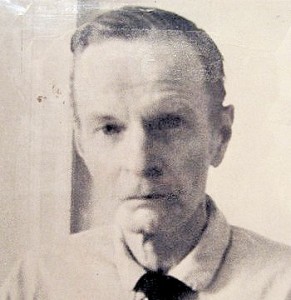
Although the film had the barest of storyline from the book, it in itself was mesmerizing. On screen the cop and suicidal Jean are already in love, and he is sent to save her by the clairvoyant who has not only predicted her father’s death, but hers. She can’t take the suspense, and wants to end it all, to remove herself from those ever present stars, because her death is foretold as being at night, outside under those stars. We meet the physic and he tells his life story, which builds with his receiving odd feelings of presentiment. He started as a common carny ‘mind reader’ complete with 2 accompanying cohorts, but
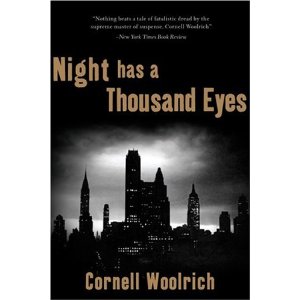
after foretelling real events, and ‘seeing’ the death of his assistant lover, he leaves the show, disappears. He had made a fortune for all of them through uncanny stock predictions. It’s the male assistant and his former lover whose child is now Jean, her mother having died in child birth, just as the physic by leaving, had hope to prevent. The psychic is tortured throughout his life–in seeing future events, and not being able to stop any of it. And yet he tries. He keeps on hoping and trying to keep fate from controlling the people around him. The end of the story is fascinating, and a real thought provoking one. Because fate prevails, but not in the manner we expected.
In that way, it is similar to the novel. We struggle along with the characters, swaying from hope to despair, finding a new clue and believing-aha!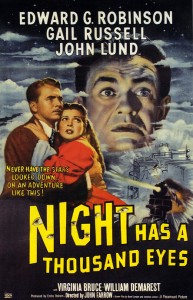 He is a fake, until that clue unravels and we are back to the inevitable, that death will come. It will come no matter what one tries to do to prevent it, how one tricks nature and averts actions. Death comes to all of us, there are no exceptions. Death is something we in this modern age hide. We try to pretend death is pretty, we embalm our corpses and remark how well they look with their death masks within their caskets. We don’t see the dying–we shuffle them off to hospitals, or hospices. We certainly don’t photograph their bodies as the Victorians did. In the past, death was all around, everywhere, there was no imaginary escape like today. Children died of common ailments, people slightly cut died from infection. Accidents were pervasive. People lived knowing death was a breath away. Woolrich reminds us of this fact. He grimly leads us along in a relentless suspenseful path to a conclusion that although not the expected, nevertheless is the inevitable outcome. A remarkable novel by one of the greatest writers of our time. Despite ‘only’ writing crime fiction suspense.
He is a fake, until that clue unravels and we are back to the inevitable, that death will come. It will come no matter what one tries to do to prevent it, how one tricks nature and averts actions. Death comes to all of us, there are no exceptions. Death is something we in this modern age hide. We try to pretend death is pretty, we embalm our corpses and remark how well they look with their death masks within their caskets. We don’t see the dying–we shuffle them off to hospitals, or hospices. We certainly don’t photograph their bodies as the Victorians did. In the past, death was all around, everywhere, there was no imaginary escape like today. Children died of common ailments, people slightly cut died from infection. Accidents were pervasive. People lived knowing death was a breath away. Woolrich reminds us of this fact. He grimly leads us along in a relentless suspenseful path to a conclusion that although not the expected, nevertheless is the inevitable outcome. A remarkable novel by one of the greatest writers of our time. Despite ‘only’ writing crime fiction suspense.
To read the entire list–in alphabetical order:

Hello.. Hi there, simply just turned into became was become changed into aware of alert to your blog weblog thru through via Google, and found and located that it is it’s really truly informative. I’m going to going to watch out be careful for brussels. I will I’ll appreciate be grateful if you should you when you in the event you in case you for those who if you happen to continue proceed this in future. Will be back again} to get more. Thank you.
http://palukursusdisain.blogspot.com/2012/10/promo-kartu-member-indomaret-minimarket.html